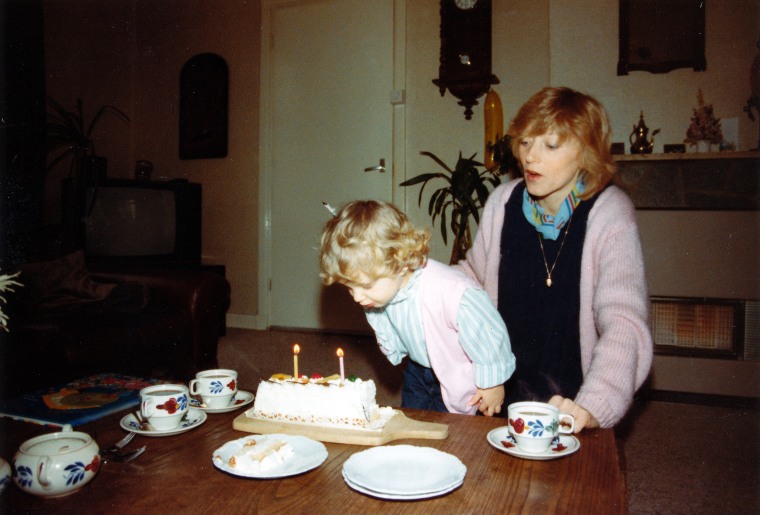If you’ve lost a parent, it’s normal to feel apprehensive around holidays like Mother’s Day. A new book called "The Modern Loss Handbook" is a guide to the grieving process with "been there" advice and humor.
Author Rebecca Soffer knows parental loss — in 2006 at the age of 30, she lost her mother in a car accident. Four years later, her father died of a heart attack. The collective experiences left the journalist feeling "untethered."
"Both of my witnesses were gone," Soffer, a mother of two who splits her time between New York and Massachusetts, told TODAY Parents. "I didn’t really have anyone to look to."
At the time, she had just earned her graduate degree and was working as a producer for "The Colbert Report" television show. "I was building and losing at the same time and it felt like this very tenuous space to live in," she recalled.
Friends were supportive — Soffer warmly remembers co-workers pulling up to her mom’s funeral in a rented van, a.k.a., the "clown car" — but few people she knew truly could empathize. However, Soffer and her friend Gabrielle Birkner channeled their shared grief into a monthly dinner party titled "Women With Dead Parents" and launched an online support community called Modern Loss. In 2018, the pair published the book "Modern Loss: Candid Conversation About Grief. Beginners Welcome," which contains personal essays inspired by grief.
Related essay: Closure is a myth: Getting through Mother’s Day without my child or my mom
Soffer describes her new book, to be published on May 17 by Running Press, as a personalized field guide with interactive components. It has sections on coping with death anniversaries and other triggering dates (plus a tear-out permission slip to opt out of remembrance rituals), as well as an infographic presenting a no-B.S. grief process ranging from "total s—show" to "odd moment of calm." It also contains a questionnaire filed under "The Tough Stuff" to help people address knotty or unresolved relationships.
"Relationships aren’t perfect and when someone dies, [it’s rare that] everything is tied up with a pretty bow and people have said their piece," Soffer explained.
In the book, "Take Your Grief To Work Days" and advice for responding to “grief voyeurs” who ask unwelcome questions about your loss also are covered.
Advice you won’t find in Soffer’s book? How to move on in a traditional sense. "Even if it was a negative relationship, you still examine or contend with it," she noted.
This year on Mother’s Day (May 8), social media tributes and corporate advertisements could sting (although as previously reported by TODAY Parents, businesses are steadily offering customers opt-out tools). If you’re struggling, Soffer offered these coping tips:
Find a 'grief buddy'
Turn to a friend (either in person or online) who has experienced parental death. For example, the Modern Loss community hosts an international gift swap ahead of trigger holidays like Mother’s Day, Father’s Day and National Siblings Day. "People send each other gifts and a card to make the day less crappy," Soffer said. "When you give or create space for a community to form around a painful experience, really amazing things can happen." She said the project has led to many friendships, romances and business ventures.
Know that grief isn’t linear
"One thing about loss is that you have no idea when the waves [of grief] will come," Soffer noted. "The time leading up to the death can be just as painful," as can birthdays or diagnosis dates. Soffer’s book has tips for enduring those "grief milestones," such as fulfilling one of your mom’s goals, making her favorite meal or buying her a gift that you can either keep or donate to someone else.
Related essay: Getting through the holidays without your mother
Consider grief therapy
As Soffer writes, "Grief isn't pathological. When someone meaningful dies, it impacts everything. There’s nothing 'wrong' with you." The book explains how to find a therapist — including what questions to ask before you get started and how to find the right therapeutic format — and addresses the scary reality of trusting a stranger with your emotions.
Be patient with yourself
When it comes to holidays like Mother’s Day, "everything is off the table," Soffer said. "We never know how it will affect us. It’s nice to have a plan but also give yourself permission to forgo it."
Related:
